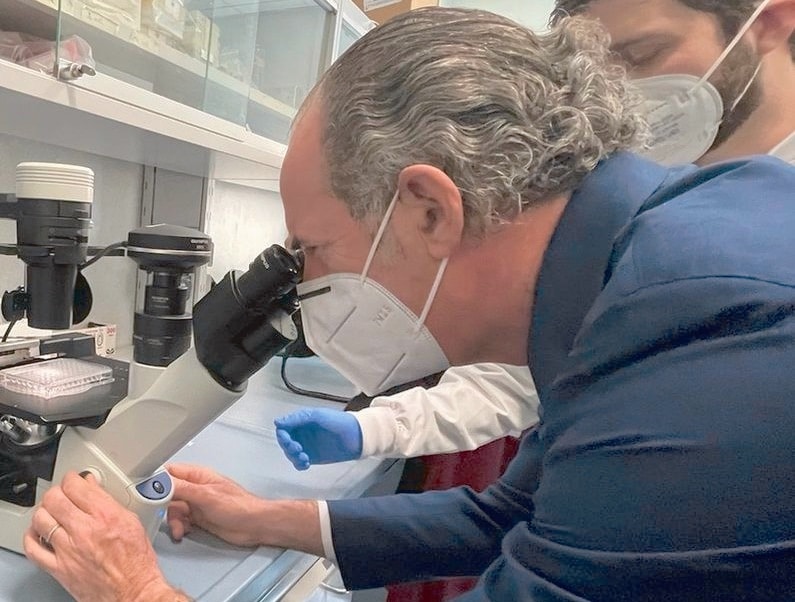Pieve Town (Perugia) – The application ofartificial intelligence plays a fundamental role in the transformation of the health system, in both organizational and healthcare terms, proving to be a valuable support for health professionals in diagnostic analyzes and clinical decisions.
For to share And elaborate on applications of artificial intelligence in the medical and diagnostic fields, the regional group Aifm (Italian Association of Medical Physics) Umbria, the Department of Services and SITRO (Technical Health Service of the Umbria 1 Local Health Authority and the Umbrian School of Public Administration) organized a study day, which was held in recent days in the Church of Sant’Agostino in Città della Pieve.
The training event (“From artificial intelligence to predictive and precision medicine as developments in healthcare”) was dedicated to Fausto Chionnehead of the Medical Physics service of the Umbria 1 Local Health Authority, who died prematurely last autumn. «The importance of artificial intelligence is undeniable – said the director general of the Local Health Authority Umbria 1 Massimo Braganti – in the future of healthcare. It is a valuable support for the healthcare professional who has already begun to bring the first benefits. Our goal is to end up equipping medical doctors with certain advanced technologies in order to improve assistance to citizens. It will be up to us to correctly address the limited resources we have to win this bet».
Luca Bernardidelegate of the national executive of Aifm, underlined the importance of offering “concrete help to colleagues who must be in a position to make the most of this type of advanced technology”. After an overview of the applications of artificial intelligence in Diagnostic Imaging, Nuclear Medicine, Radiotherapy and Medical Physics, the interventions at the round table offered interesting food for thought. Walter Popedirector of the services department of the Local Health Authority Umbria 1, spoke about the impact of artificial intelligence on clinical practice.
«It has already been present for many years – he explained -. Today, when it is spoken of in medical applications, it is fully perceived. In medicine, and more specifically in diagnostic medicine, artificial intelligence works to two levels. The first is being acquired with the industry that produces diagnostic equipment, in particular computed tomography and magnetic resonance, and uses algorithms and neural networks to increase the temporal resolution power of the machines. In the second level, it supports the doctor in reporting and can do so in two ways: organizational and decision-making. The radiologist’s challenge will be to dominate the process and not be dominated by it».
«In clinical medicine – explained the professor Joseph Ambrosiodirector of the hospital-university chair of Cardiology of Perugia – current artificial intelligence methods can offer substantial help for the analysis not only of diagnostic images, but also of particularly complex physiopathological interactions, where the human mind cannot reach or in any case cannot reasonably quickly, and to develop personalized therapies. But more than in everyday life, today artificial intelligence is proving to be important in facilitating diagnosis and assistance under particular conditions such as disasters and other maxi emergencies, in the absence of health professionals or expert health professionals».
He spoke on the change management strategies and on the key roles to introduce Artificial Intelligence in healthcare organizations Giancarlo Bizzarrisole director of PuntoZero Scarl: «The strategies for managing change could be systemic actions to foresee these projects in the PSR and in the projects of the PNRR».


